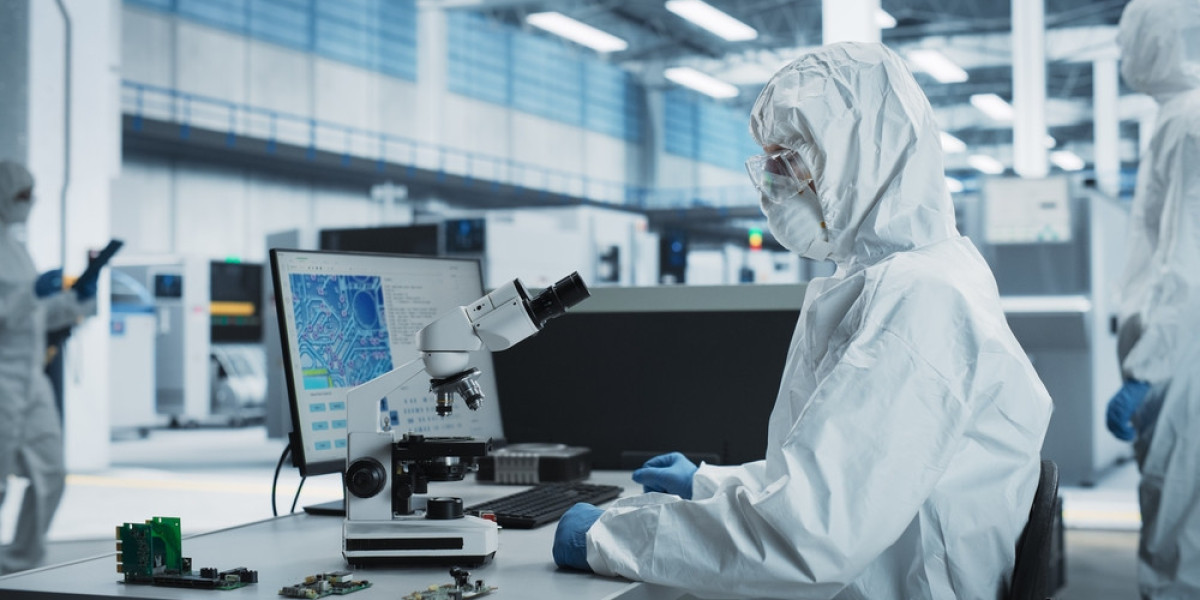Introduction
Medicine and technology evolve at lightning speed, pharmaceutical engineers stand at the forefront of healthcare advancement. These professionals are the masterminds behind developing, testing, and manufacturing drugs that save lives every day. The field blends the precision of chemistry with the innovation of engineering, forming the foundation for medical breakthroughs. Understanding chemical and pharmaceutical engineering roles is essential to grasp how deeply these experts influence the quality, safety, and availability of modern therapeutics. Their work not only shapes how drugs are made but also determines how effectively healthcare systems can respond to global health challenges.
From designing production facilities to improving drug formulations, pharmaceutical engineers ensure that every pill, vaccine, or infusion that reaches patients meets the highest standards of safety and efficacy. In short, they transform laboratory discoveries into scalable, life-changing treatments that define the future of healthcare.
The Foundation of Pharmaceutical Engineering
Pharmaceutical engineering is an interdisciplinary field that bridges chemical engineering, biology, and pharmaceutical sciences. It focuses on designing and optimizing processes for developing active pharmaceutical ingredients (APIs), formulating them into dosage forms, and ensuring that these processes can be safely scaled for global distribution.
Pharmaceutical engineers are involved in every stage of a drug’s lifecycle, from conception to commercialization. They:
Design manufacturing systems that meet strict regulatory standards.
Ensure production methods yield consistent and high-quality results.
Integrate automation and advanced technologies to enhance efficiency.
Collaborate with chemists, biologists, and quality control teams to maintain compliance and innovation.
In essence, these professionals serve as the bridge between scientific discovery and real-world healthcare delivery. Without them, even the most promising medical discoveries could remain confined to research laboratories.
Driving Innovation Through Technology
Pharmaceutical engineers play a critical role in merging technology with medicine. They integrate artificial intelligence (AI), automation, and nanotechnology into pharmaceutical production to achieve greater precision and efficiency. For example, AI algorithms help analyze complex chemical reactions, while nanotechnology enables the design of targeted drug delivery systems that minimize side effects and maximize effectiveness.
Modern pharmaceutical facilities increasingly depend on automated systems that reduce human error and enhance consistency. Engineers design these systems with sustainability in mind, focusing on reducing waste, energy consumption, and environmental impact. This commitment to green manufacturing not only aligns with global sustainability goals but also reduces production costs—making life-saving medications more affordable.
Another exciting technological advancement is the rise of continuous manufacturing, which allows for real-time quality monitoring and faster production compared to traditional batch methods. Pharmaceutical engineers are pioneering this transformation, helping companies respond more swiftly to emergencies such as pandemics or shortages.
Ensuring Safety and Quality in Every Dose
Drug safety and quality are non-negotiable in healthcare. Pharmaceutical engineers are tasked with designing systems that guarantee every dose produced meets exacting standards. They oversee validation processes, risk assessments, and regulatory compliance to ensure patient safety.
Their work doesn’t end with production; it extends to packaging, storage, and transportation. Environmental factors like humidity, temperature, and light exposure can alter a drug’s stability. Engineers develop specialized packaging materials and cold-chain logistics systems to preserve product integrity until it reaches the patient.
Moreover, pharmaceutical engineers must stay up to date with global regulations from agencies such as the FDA (Food and Drug Administration) and EMA (European Medicines Agency). They design facilities and protocols that align with Good Manufacturing Practices (GMP), ensuring that products meet international standards.
This meticulous attention to safety and quality safeguards public health and builds trust in pharmaceutical companies, a cornerstone of modern healthcare.
The Role of Pharmaceutical Engineers in Drug Development
Drug development is a long and complex process that involves several phases—discovery, preclinical studies, clinical trials, and commercialization. Pharmaceutical engineers play crucial roles in each phase:
Formulation Development: They design the composition of a drug to ensure optimal delivery and absorption in the body.
Process Design: They create efficient, reproducible manufacturing processes that maintain consistency from lab scale to industrial scale.
Pilot Plant Operations: Engineers test and refine production methods before full-scale manufacturing.
Scale-Up and Validation: They ensure that scaled-up operations maintain the same quality and efficacy as small-scale tests.
Regulatory Support: Pharmaceutical engineers prepare the necessary technical documentation for regulatory approval, detailing every aspect of production.
Their ability to transform research concepts into viable products accelerates innovation and shortens the time it takes for life-saving drugs to reach the market.
Collaboration with Healthcare and Research Teams
Pharmaceutical engineers rarely work in isolation. They collaborate with chemists, biologists, clinicians, and data scientists to develop effective healthcare solutions. This multidisciplinary teamwork ensures that new drugs are not only scientifically sound but also manufacturable, safe, and accessible.
For instance, when researchers identify a potential new molecule to treat a disease, engineers determine how to produce it efficiently at scale. They optimize reaction conditions, select suitable materials, and develop purification techniques. This collaborative effort ensures that scientific discoveries can transition seamlessly from the laboratory to the patient’s bedside.
Additionally, pharmaceutical engineers contribute to research initiatives such as vaccine development, gene therapy, and personalized medicine. Their input helps translate innovative therapies into reliable manufacturing processes, ensuring consistent quality across global markets.
Addressing Global Healthcare Challenges
Pharmaceutical engineers are instrumental in tackling some of the most pressing challenges in global healthcare. From managing supply chain disruptions to addressing drug shortages, they ensure stability and resilience within the pharmaceutical ecosystem.
During the COVID-19 pandemic, for instance, pharmaceutical engineers played a pivotal role in designing facilities for rapid vaccine production. They optimized processes to produce billions of doses within tight timelines, demonstrating how their expertise directly impacts global health outcomes.
Beyond pandemics, engineers are also addressing challenges like antibiotic resistance, sustainable production, and the development of orphan drugs for rare diseases. Their innovation continues to push the boundaries of what’s possible in modern medicine.
The Future of Pharmaceutical Engineering
The future of healthcare innovation depends heavily on advancements in pharmaceutical engineering. Emerging trends such as precision medicine, biopharmaceuticals, and 3D-printed drugs are reshaping the industry. Pharmaceutical engineers are leading this transformation by designing flexible manufacturing systems capable of adapting to rapidly changing technologies.
As personalized therapies become more common, pharmaceutical engineers will need to develop smaller, more adaptive production facilities that can cater to individualized treatment plans. This shift will demand expertise in data analytics, automation, and bioengineering, skills that define the next generation of pharmaceutical professionals.
Moreover, digital transformation will continue to influence every aspect of pharmaceutical engineering. Engineers will increasingly rely on digital twins, simulation tools, and predictive analytics to improve efficiency and reduce risk. The intersection of engineering and digital technology promises a more agile and responsive pharmaceutical industry.
Conclusion
Pharmaceutical engineers are the silent architects of healthcare innovation. Their expertise in blending chemistry, biology, and engineering enables the safe, efficient, and sustainable production of life-saving drugs. By ensuring that new treatments move seamlessly from laboratory discovery to patient care, they empower the healthcare system to evolve continuously.
As global health challenges grow more complex, the demand for skilled pharmaceutical engineers will continue to rise. Their work not only drives innovation but also ensures that healthcare remains accessible, reliable, and forward-looking.
For anyone inspired by this transformative field, it’s never too late to explore new professional horizons. To advance your understanding of this vital sector and discover new career paths, access healthcare career resources and open the door to a world of opportunity.






